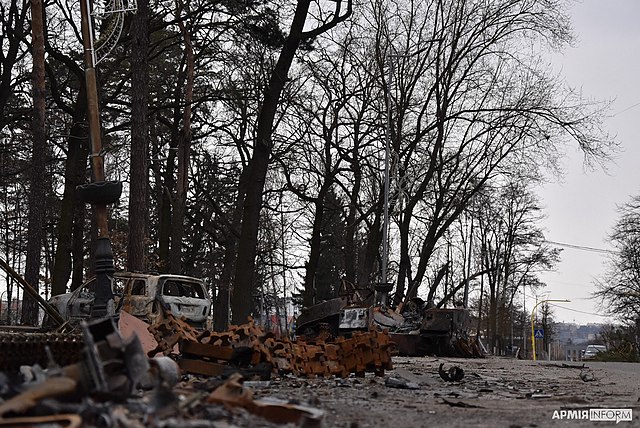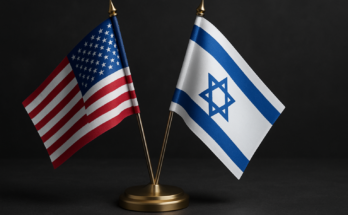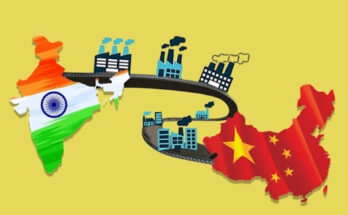Since the 24th of February, the world community has been looking at the serious debacle of cooperative and protective internationalism in Ukraine as a silent spectator. The rhetoric approach of Russia towards Ukraine seems to be anti-US but, at the same time, a nationalistic spell to restrict the expansion of NATO. Curiously, as a student of International Politics, the same attitude against Ukraine could be described in the revival of Churchill’s “Theory of Iron Curtain.” Despite a strong institutional apparatus, we have yet to finalize the action plan to protect human rights in Ukraine with the collective consciousness of both moralities and materials. Instead of investigating the Russian intention, it is imperative to analyse the global structure from a theoretical framework; moreover, without a clear image of the global structure, it would seem impossible to expatiate the expediency behind wars, invasions, and brutalities. Despite the procedural discrepancies, all the established theories of IR such as Realism, Liberalism, Neorealism, Neoliberalism, and so on, have agreed with the anarchical global structure where no higher authority prevails for legal endorsement; however, within such a state of lawlessness, it might not be derogatory viewpoint to consider that our global existence is entirely anarchic. All the institutional structures, including UNO, have failed to intervene in the Ukraine crisis with all the possible efforts. The Russian invasion of Ukraine divulges the reality of Global Institutionalism and the so-called West-led peace process. Apart from that, the anarchic global structure needs to be exposed amidst the Ukraine crisis.

АрміяInform / Віталій Саранцев, Роман Драпак
Creative Commons Attribution 4.0
Reassessing The Anarchic World
By the term “Anarchy,” we generally mean statelessness or lawlessness. Before the usage of Anarchy in International Relations, it was and perhaps had been prevailing on the horizon of Political Theory and Political Philosophy. Skeptical insight on power has been the guiding force behind the Anarchic thoughts. Anarchism is usually grounded in moral claims about the importance of individual liberty, often conceived as freedom from domination1. Philosophically, Anarchy or Anarchism has positively been used to denote a human existence without coercive domination. Unlikely to the philosophical interpretation, Anarchy has been prevailing in International Relations from a different perspective where the existing world order seems to order less. Realism defines Anarchy as the central theme of global order. Classical realists such as Thomas Hobbes, Reinhold Niebuhr, and Hans Morgenthau attributed egoism and power politics primarily to human nature, whereas structural realists or neorealists emphasize Anarchy2. By Anarchy, what is often meant is that international politics takes place in an arena that has no overarching central authority above the individual collection of sovereign states3 .
Thus, the anarchic nature of global politics extends ample scope to all the actors for satisfying one’s own interests. Robert Gilpin, an IR theorist on International Security, narrates Anarchy from a political perspective as “a recurring struggle for wealth and power among independent actors in a state of anarchy”4. Similarly, Kenneth Waltz, a prominent thinker of Neo-Realism, understood the world from an anarchic perspective. According to Waltz “anarchy is the first element of structure in the international system”5 . The most authoritative explanation comes from Robert Axelrod as a central question of IR where he asked that ‘under what condition will cooperation emerge in a world of egoists without central authority?’6 . Liberals have defined international system which could be maintainable through an institutional structure and complex interdependence; likewise, Neoliberal institutionalism does not particularly disagree on the argument that the system is anarchical, but neoliberals tend to believe that opportunities for cooperation and peace are much greater than realists believe they are7 .
Apart from that, almost all the IR theorists have been explaining the world structure with the same insight; however, in our 21st century too, the Realist assumptions like self-help, egoism, and national interest are well connected and established to understand world affairs. The absence of central authority at the global level still makes confusion about a peaceful world, it seems impossible to hold the entire nationalities together with having a loose institutional structure where the powerful actors shallow the powerless. From the Westphalian treaty to vote for Putin’s War Crime, several initiatives were taken and are still doling out reasonable constraints over the global powers. Eventually, the sovereign state claims her competent position based on national interest is rooted in realist proposition. Nothing can be placed before the domestic identity which may impeach their pre-eminence and interests. Considering the current global crisis, the non-authoritative nature of our world order needs to be managed with serious intervention to make a world with order.
UNO: A Collective Disorder
The idea of an international body to promote global peace started with President Franklin Roosevelt of the United States and Prime Minister Winston Churchill of the United Kingdom8 . Before forming an international body, Woodrow Wilson designed a League of Nation through his famous 14 points. The Kantian idea of Perpetual Peace was the guiding force behind establishing a new international order with the collective manifestation of wisdom for peace, security, and good will. After the consent of 50 nations, The United Nations Charter was enforced to replace the LON in April 1945 in San Francisco. Optimism for world peace was restored but, after 76 years of engagement with world affairs it might not be an issue to review the strength and courage of the UNO to mitigate the global Crisis, ranging from its successes to failures. Having a wide variety of institutional structures, still the vital decision-making burden has been vested on the shoulder of five permanent members of the United Nations Security Council or UNSC; moreover, the Power of Veto has been preventing the UNO to take any consensual step in order to prevent catastrophe. Jennifer Trahan, a Clinical Professor of NYS SPS Centre for Global Affairs, analysed the Veto Power as “Such Vetoes have blocked condemnation, investigation, and prosecution of crimes, as well as other measures designed to curtail or alleviate the commission of these crimes”9 . Critics point out the impunity with which the five permanent members of the Security Council go about advancing their self-interests unhindered, as long as they do not step on each other’s toes10 .
Dealing with issues like Military interventions during Cold War, China’s atrocity in Hong Kong, Rwanda genocide, Afghanistan issue, action against COVID 19, Russian invasion of Ukraine and recent economic downfall in Sri Lanka are the real examples of UN’s failure to accomplish the goal for whom it was injected into the world. The war in Ukraine has once again shown the veto power of the Security Council’s five permanent members to be a major stumbling block to peace11 . The initial hopes for a better world have been destroyed with the helplessness of the UN. Complex interdependence through tariff free trade and commerce seems to be inadequate for establishing a peaceful world; moreover, the domination of the US and its NATO allies in the world economy has diminished global equality and impartiality.
The United States of America, despite pioneering the United Nations has over the years, disregarded the Security Council, insisted on acting alone, retreated from formal multilateral obligations and declined to ratify agreements widely accepted by the international society12 . Dollar diplomacy and the strategic alliance of the USA with all the emerging economies would be considered as a security threat for Russia, China and other national economies whose international transaction is supposed to be relatively higher in different sectors such as military hardware, technology, daily products. Collective will to preserve the peace and tranquillity in the world has been reduced to a mere aspiration, having the institutional loopholes, UNO needs to be revived with an Institution of Order rather than an Institution of Disorder. It is desirable for UNO to cut off its institutional and functional dependency over the superpowers and the Veto Power should be democratised to maintain a balance between self-interests and general will.
From Ukraine Crisis To Legitimation Crisis
Who is responsible for the Ukraine Crisis? Russia or Global Structure. This question needs special attention, not because of my national preference for Russia, but rather the structural Crisis of global order that tends to frame a mistrust among the powers. It was expected to resolve the dispute through consensual understanding in UNO; several rounds of voting were held to determine the Russian aggression toward Ukraine but, ultimately, the horrible picture of Ukraine is still the same as it was in the initial stage. Russia’s aggression against Ukraine exposes the extraordinary failure of the UN Security Council to live up to its primary responsibility to maintain international peace and security13 . In this context, the famous concept of Jurgen Habermas – “Legitimation Crisis” can be relatable with the UN’s failure. As a Marxist, Habermas understood the concept of Crisis from a liberal-capitalist perspective. He asserted that “A theorem of crisis has to explain not only why the state apparatus encounters difficulties but also why certain problem remains unsolved in the long run”14. By the legitimation crisis, Habermas understood the loss of confidence in governing institutions to accomplish the public goods; moreover, it refers to the erosion of capacity to legitimise the institutional dominance inside the masses. Eventually, the administrative and governing structure gets affected by the Crisis of legitimation.
Application of Habermas’s Legitimation Crisis in the circle of UN’s initiative for Ukraine crisis seems appropriate and maintainable. Since the very beginning of the Russian invasion into Ukraine, the United Nation Security Council has been interrogating over the matter with deliberate voting procedure to condemn Russia’s intervention. Rigorous human rights abuses in Ukraine are yet to be legally recognized by the UN through strong retaliation against Russia. In between the war period, the General Secretary of the UN General Assembly was scheduled to discuss the matter with the Russian President. Ultimately, the whole deliberation was washed away with rhetorical military attack. From the perspective of Habermas, UN institutional structure has been suffering from the Crisis of legitimation because the world and its members have experienced the administrative and functional inability of UN organs to do appropriate without domination. UNO has lost its legitimate power due to several developments in past decades, including Ukraine issues where the direct intervention of UN’s highest authority was declined without any substantial result. To tackle the Crisis at the global level, the UN administration has to revive its institutional capabilities to form its legitimation. Thus, the formation of legitimation denotes the institutional persuasion to build confidence among the masses to establish a legitimate global structure to counter incapacities.
Conclusion
Anarchic global order has maintained its dominance over complex interdependence. National security seems to be more lawless with having a UN Charter. The current security and humanitarian Crisis in Ukraine has more to do with global structure than Russia’s military intervention. I must confess that our global system with the United Nations could have been able to protect global peace if it had a legitimate power to put restrictions over the superpowers. The UN-US combination has degraded the plural world order which needs to be altered with multilateralism. It is the best time to learn the disease of our world order for establishing a curable world.
Fiala, A. (2021, October 26). Anarchism . Retrieved from Stanford Encyclopedia of Philosophy : https://plato.stanford.edu/entries/anarchism/ ↩
Wendt, A. (1992). Anarchy is what states make of it: the social construction of power politics. International Organization , 391-425. ↩
Baylis, J., Smith, S., & Owens, P. (2014). The Globalization of World Politics . New York : Oxford University Press . ↩
Gilpin, R. (1981). War and Change in World Politics . Cambridge University Press . ↩
Waltz, K. (1979). Theory of International Politics . Reading Mass. ↩
Axelrod, R. (1984). The Evolution of Cooperation . Basic Books . ↩
Griveaud, M. (2011, May 22). IS the anarchical international system the cause of war? . Retrieved from E-INTERNATIONAL RELATIONS: https://www.e-ir.info/2011/05/22/is-the-fact-that-man-lives-in-an-international-system-defined-by-anarchy-the-cause-of-war/ ↩
Khan, S. R. (2020, October 23). The United Nations at 75: successes, failures and challenges. Retrieved from The Gainesville Sun: https://www.gainesville.com/story/opinion/2020/10/23/saeed-r-khan-united-nations-75-successes-failures-and-challenges/3669297001/ ↩
Trahan, J. (2019, April 16). Have the Security Council Members Abused their UN Veto Power? Retrieved from Medium: https://medium.com/@ICTJ/the-legal-limits-of-un-veto-power-f5ebc5950ac0 ↩
Tharoor, S., & Mathew, E. D. (2022, April 19). UN failed to prevent Russia’s aggression. Yet, it can’t be written off. Retrieved from Indian Expression : https://indianexpress.com/article/opinion/un-failed-to-prevent-russias-aggression-yet-it-cant-be-written-off-7875580/ ↩
Dervis, K., & Ocampo, J. A. (2022, March 3). Will Ukraine’s tragedy spur UN Security Council reform? Retrieved from Brookings : https://www.brookings.edu/opinions/will-ukraines-tragedy-spur-un-security-council-reform/ ↩
Patrick, S. (2002). Multilateralism and its Discontents: The Causes and Consequences of US Ambivalence. In P. Stewart, & F. Shepard, Multiculturalism and US Foreign Policy: Ambivalent Engagement (pp. 1-46). London : Lynne Rienner . ↩
Borda, D. A. (2022, February 28). Ukraine and the failure of the United Nations Security Council . Retrieved from City University of London : https://www.city.ac.uk/news-and-events/news/2022/02/ukraine-and-the-failure-of-the-united-nations-security-council ↩
Habermas, J. (1973). What Does A Crisis Mean Today? Legitimation Problem In Late Capitalism . Social Research , 643-667. ↩



